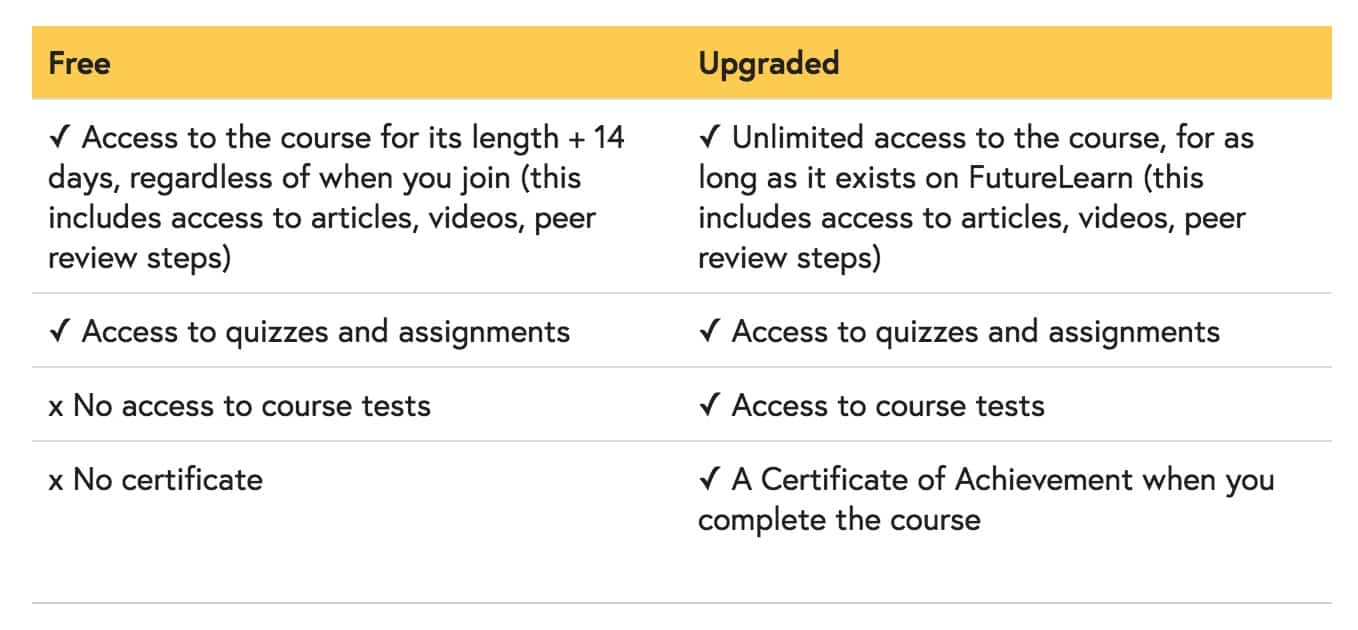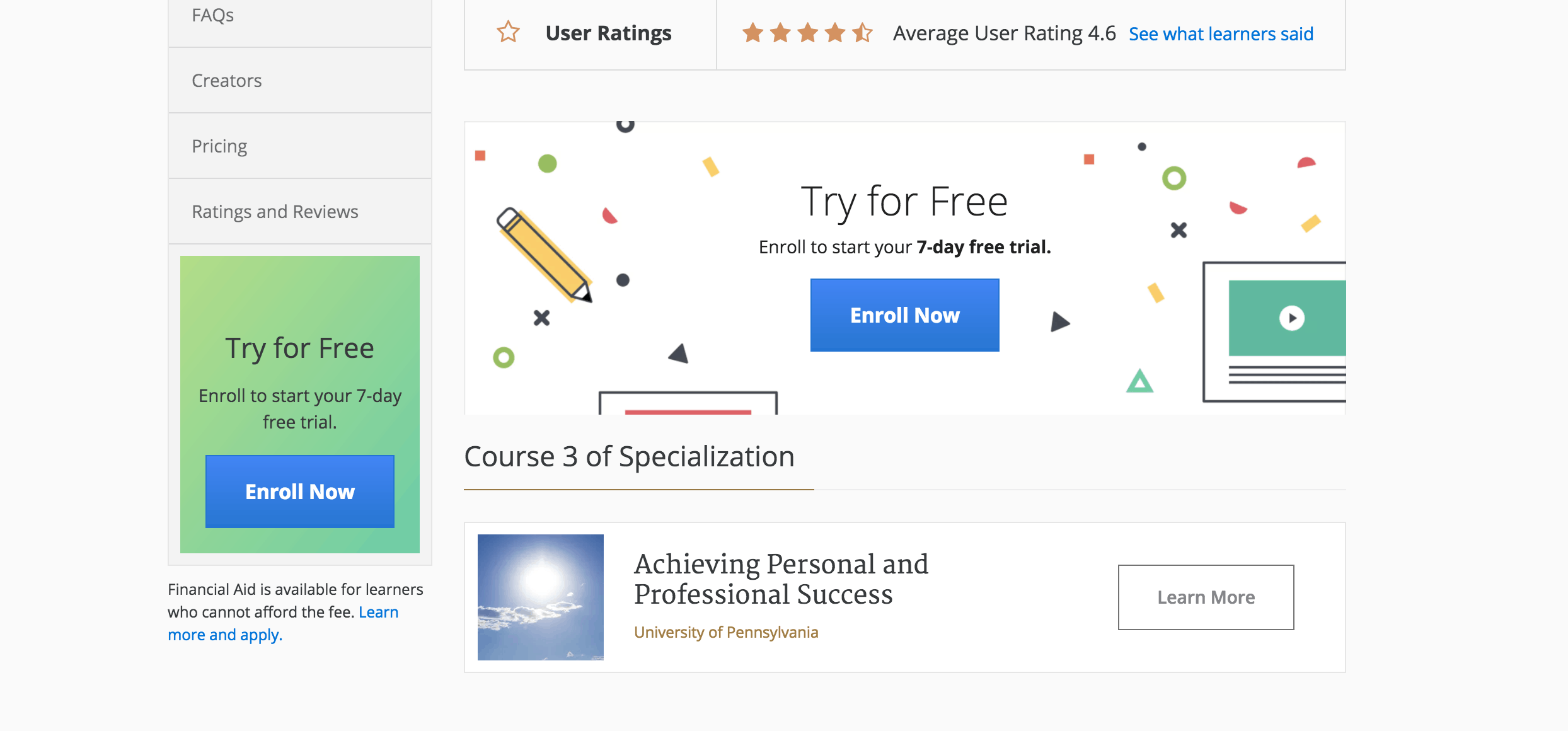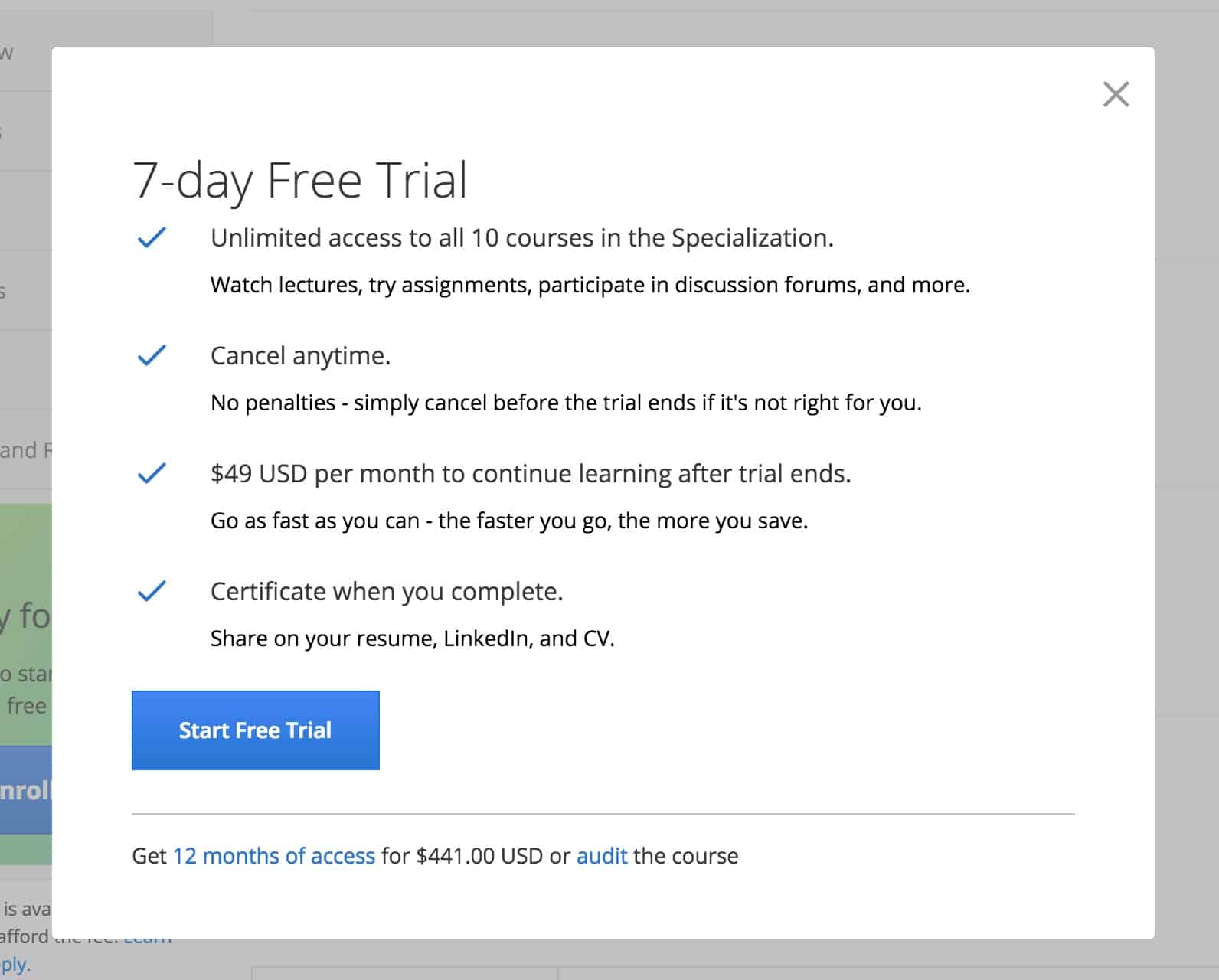FutureLearn’s New Pricing Model Limits Access to Course Content After the Course Ends
FutureLearn’s latest change shows that MOOC providers continue to struggle with the business model, moving further toward monetization over massiveness.
Last month FutureLearn announced a new pricing model that limits access to course content and exams. Previously FutureLearn used to charge only for certificates (digital and print). The course content and the exams were completely free.
https://about.futurelearn.com/blog/upgrading-futurelearn-courses/
Under the new pricing model, the exams are behind a paywall (similar to Coursera). The course content is still free to access, but it’s only available for the duration of the course and two weeks after it ends. For unlimited access to the course (caveat: as long as it exists on FutureLearn), learners needs to upgrade. That costs anywhere between £24–69.
This is the same price as the course certificate. So basically FutureLearn has bundled access to course content into the cost of a certificate.
“Research we carried out showed that a certificate on its own doesn’t offer enough value for money and that some people don’t want or need a certificate. That’s why we want to create a more useful package of features that we think provides great value to as many people as possible.”
— Matt Walton, Chief Product Officer at FutureLearn
This change isn’t surprising and follows similar trends by different MOOC providers. As Matt Walton — Chief Product Officer at FutureLearn — notes, charging for certificates hasn’t proven to be an effective business model for MOOC providers. For many learners, certificates are not a priority.
So now MOOC providers have started charging for course content. Paid-only courses have become common on both Coursera and edX. Back in 2015 Coursera was the first MOOC provider to put graded assignments behind a paywall. FutureLearn seems to have followed in Coursera’s footsteps.
Shrinking of Free
When I did my first MOOC back in October 2011, the videos, assignments, and certificates were free. The definition of “free” has shrunk as providers have made aggressive moves towards monetization. As we noted in our analysis last year, the MOOC providers have focused on monetization over massiveness.
In some cases providers obfuscate the fact that the courses (or at least the videos) can be accessed for free. Last month, we noted that edX had listed a few of their courses on Amazon.com, but failed to disclose that the courses themselves are free and what learners are actually buying is the respective course’s certificate.
Below you will find screenshots of the latest iteration of the enroll button and sign-up combination on Coursera. To sign up for the course for free, one needs to click the “enroll now” button and then the tiny “audit” link in the bottom right on the popup.
I suspect we will see more aggressive moves towards monetization this year, as well as an increase in pricing (it’s already happening). I would not be surprised if we were to see more paid-only content in the near future.
Related











MC
I just ran into the first MOOC I’ve ever completed that demanded we buy a Cert (for about $50 USD) or settle for being only 93% complete forever. Dirty trick!
Jaime De La Barrera
well some of us (retired) will have to stop learning or try to find some free courses, too bad
Graham Martin
Agree. I suggested to FL that they charged a small fee, per course that everybody paid. I did a short, four-week course (about 12 hours) and was asked to pay £39 for a test! It ain’t gonna happen. Like you (retired) I’m looking elsewhere.
Heather Parsons
I started MOOC’s when they first began and it was terrific, I could follow particular subjects and I could afford the certificates, but now I do a course now and cannot afford the recognition for taking the course. In fact they have got so expensive that I am contemplating no longer studying.
Kwak English
I have been one of the most violent viral marketers in South Korea with taking more than hundreds of courses. I think now I have to withdraw my words; free learning.
SF
Very cheeky – I am doing a MOOC with FutureLearn, and the cost to ‘upgrade’ the course – so that I am able to take the test, receive a certificate, and access the course material in the future, is gradually increasing! So the more I put off the decision to upgrade… the higher the cost goes!!!!
Stewart Powles
I was just doing a FutureLearn MOOC and was really dissapointed to learn I have to pay £42 just to take a 10 question test. When I first used FutureLearn a few years ago everything was free (except printed certificates). Very dissapointing. So much for knowledge for all.